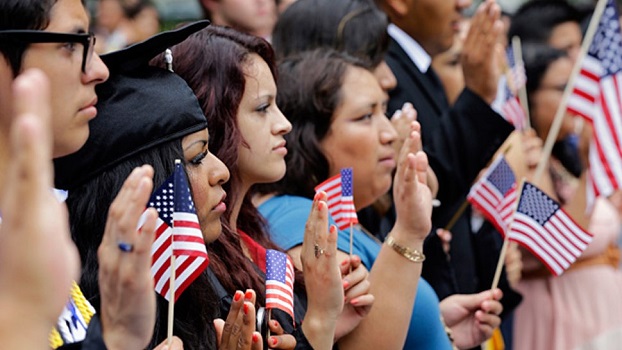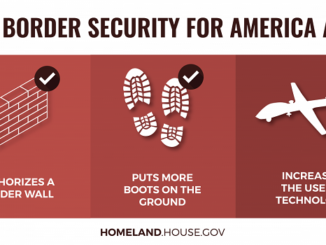
by Janet Napolitano
Dreamers are, in every sense but one, as American as those whose relatives arrived on the Mayflower.
As secretary of the Department of Homeland Security in 2012, I presided over a formal and vital change to our nation’s immigration enforcement priorities.
Under the Deferred Action for Childhood Arrivals program, or DACA, the Obama Administration urged young undocumented immigrants brought to this country as children to voluntarily undergo rigorous background and security checks in exchange for the renewable option to legally live, work, and study in the country they know as home.
In the absence of comprehensive immigration reform, nearly 800,000 Dreamers enrolled in the program, which has benefited not only these high achieving young people, but our nation as a whole.
Now the future of DACA is in jeopardy. The Trump administration’s plan to end the program is illegal, unconstitutional, and anathema to our national ethos. It also defies common sense. I believed in the importance of DACA five years ago, and I will fight for it now.
This is why the University of California Board of Regents and I have filed suit in federal court against the Department of Homeland Security. On behalf of the university and our DACA students, we have asked the court to overturn the rescission of this program I helped create.
As president of the 10-campus University of California system, I know who these Dreamers are and who they want to become. Losing them would represent a massive loss for our country — and the huge costs of a deportation process.
Indeed, my faith in DACA has only been strengthened by my experiences leading our nation’s largest public research university system. Our more than 260,000 students are among the most accomplished in the United States. Their backgrounds reflect those of our country as a whole: All but a small fraction are descendants of immigrants or immigrants themselves.
Yet the UC students who have arguably placed the most trust in our federal government — undocumented immigrants who have come out of the shadows to supply verified information about their personal lives — now fear being deported to countries they do not know and whose language they may not even speak.
By definition and practice, DACA recipients were brought to the United States as children. They have thrived in our country, the only one they know as home. Many of these Dreamers live in California, and thousands of them have met the rigorous academic standards required to enroll at the University of California.
They are students such as Lizbeth Nuñez, who was born in Sinaloa, Mexico and arrived in California strapped to the back of her mother, who came to work the fields of the state’s agriculturally rich Central Valley. Now Nuñez studies molecular and cell biology with an emphasis in neurobiology at UC Berkeley. She hopes to become a psychopathologist — a brain scientist who studies the physical and physiological causes of mental illness.
Only weeks before starting her first year of classes, Nuñez was picking grapes alongside her mother in the scorching heat outside Bakersfield, California, to earn some extra money for school. This summer, before her second year at Berkeley, she secured a position in a campus research lab, in addition to taking classes and working over the break.
DACA recipients, too, are people such as Yuriana Aguilar, who recently received her Ph.D. in quantitative and systems biology from UC Merced. Aguilar’s research on sudden cardiac death, the country’s most common cause of natural death, centers on T-wave alternans, or TWAs, and how they might predict such heart attacks much earlier than is currently possible and therefore better help people at risk.
The Center for American Progress estimates losing DACA workers would reduce our country’s gross domestic product by $433 billion over the next 10 years, with California taking the biggest hit. As the rigorous DACA application process verifies, Dreamers are productive members of our communities.
The Department of Homeland Security’s reasoning for rescinding DACA is based solely on the alleged illegality of a separate program that was never implemented. This is unreasoned and this is wrong.
No court has found DACA to be invalid, and indeed, the Department of Justice reaffirmed its validity in 2014.
Furthermore, the Trump administration’s actions clearly violate the due process rights of the University of California and its students and employees, as well as the Administrative Procedure Act, which prohibits federal agencies from acting in a capricious manner.
In November, the University of California will present its arguments in The Regents of the University of California and Janet Napolitano v. U.S. Department of Homeland Security and Elaine Duke, and a hearing on the case will likely be held in December.
In the interim, and until Congress passes comprehensive immigration reform with a path to citizenship, we must fight this shortsighted and unlawful move. These young people are, in every sense but one, as American as those whose relatives arrived in this country on the Mayflower.



